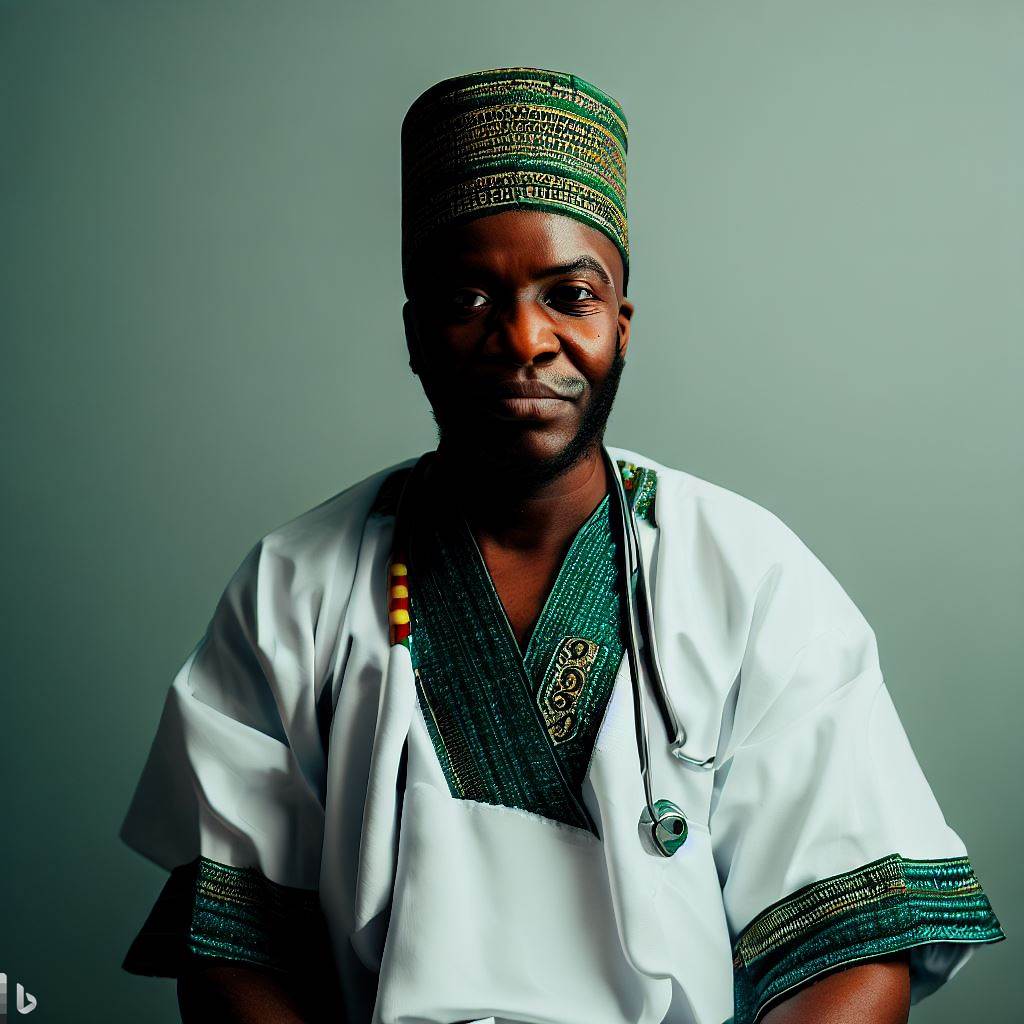Introduction
The importance of counseling techniques in Nigeria
Counseling techniques play a crucial role in Nigeria, addressing various mental health challenges and promoting overall well-being.
The country employs diverse counseling techniques to cater to its vast population and meet their unique needs.
An Overview Of The Diverse Counseling Techniques Used In The Country
Nigeria, with a population of over 200 million people, faces numerous mental health issues, including anxiety, depression, substance abuse, and trauma.
Counseling techniques provide a vital avenue for addressing these challenges and improving the mental health of individuals.
In Nigeria, diverse counseling techniques are utilized to effectively reach individuals from different backgrounds and cultures.
These techniques include cognitive-behavioral therapy, solution-focused therapy, psychodynamic therapy, and group therapy.
Cognitive-behavioral therapy (CBT) is widely used and focuses on identifying and modifying negative thought patterns and behaviors.
It equips individuals with coping strategies to manage their emotions better and make positive changes in their lives.
Solution-focused therapy emphasizes finding solutions rather than dwelling on problems.
It aims to identify and amplify an individual’s strengths, promoting self-efficacy and enabling them to achieve their goals.
Psychodynamic therapy delves into a client’s unconscious processes, past experiences, and relationships to gain insight into their current challenges.
It helps individuals explore their emotions and develop a better understanding of themselves.
Group therapy brings individuals with similar issues together in a supportive environment.
It encourages peer support and allows individuals to share experiences, gain different perspectives, and build social connections.
These diverse counseling techniques in Nigeria help address the mental health needs of a diverse population and promote overall well-being.
Traditional Counseling Techniques
- Traditional counseling approaches are prevalent in Nigeria and have been practiced for centuries.
- One technique is divination, where spiritual leaders use spiritual means to gain insight into clients’ issues.
- Herbal treatments are another common technique used in traditional counseling to address various mental and physical ailments.
- Spiritual counseling involves seeking guidance and support from religious leaders or traditional healers.
- Traditional counseling techniques hold immense cultural significance in Nigerian society.
- These methods are deeply rooted in indigenous beliefs, customs, and traditions.
- Traditional counseling is often seen as complementary to Western counseling methods.
- Divination, for example, helps individuals connect with their ancestors and receive guidance for life’s challenges.
- Herbal treatments are believed to restore balance and harmony in both the body and mind.
- Spiritual counseling offers individuals spiritual healing and guidance in times of distress.
- The effectiveness of traditional counseling techniques can be attributed to the holistic approach they take.
- Traditional healers address not only the individual’s psychological well-being but also their social and spiritual needs.
Techniques Such As Divination, Herbal Treatments, And Spiritual Counseling
Nigeria embraces prevalent traditional counseling techniques. Divination, herbal remedies, and spiritual counseling exemplify approaches employed to manage diverse mental and physical conditions.
The Cultural Significance And Effectiveness Of Traditional Techniques
These methods carry significant cultural weight and prove efficacious within Nigerian society.
Traditional healers adopt a holistic healing approach, factoring in psychological, social, and spiritual aspects of the individual.
Though efficacy fluctuates, these techniques retain the trust of numerous Nigerians, offering cultural connection and continuity in their lives.
Read: The Evolution of Counseling in Nigeria: A Timeline
Western Counseling Techniques
In recent years, Nigeria has experienced a rapid influx of Western counseling techniques, which have significantly influenced the field of mental health in the country.
This blog section will explore the various aspects of this influence, including the adoption and integration of techniques like cognitive behavior therapy (CBT) and person-centered therapy.
Additionally, the benefits and challenges of implementing Western counseling techniques within Nigerian culture will be discussed.
1. Influence of Western Counseling Techniques in Nigeria
The introduction of Western counseling techniques in Nigeria has revolutionized the mental health landscape.
These techniques have provided a fresh perspective and enhanced therapeutic options for both counselors and clients.
2. Adoption and Integration of Cognitive Behavior Therapy (CBT)
Cognitive Behavior Therapy (CBT) is one of the most widely adopted Western counseling techniques in Nigeria.
It focuses on the relationship between thoughts, feelings, and behaviors, aiming to identify and modify negative patterns.
CBT has been successfully integrated into Nigerian counseling practices.
3. Adoption and Integration of Person-centered Therapy
Person-centered therapy, developed by Carl Rogers, has also gained popularity in Nigeria.
This approach emphasizes the importance of the therapeutic relationship and empowers clients to take control of their own healing process.
Nigerian counselors have embraced this technique as it aligns with the cultural values of empathy and respect.
4. Benefits of Implementing Western Counseling Techniques in Nigerian Culture
The integration of Western counseling techniques in Nigerian culture has brought numerous benefits.
Firstly, it has expanded the range of therapeutic options available, allowing counselors to tailor their approaches to each client’s specific needs.
Additionally, these techniques have helped reduce the stigma surrounding seeking mental health support as they are widely recognized and accepted globally.
5. Challenges of Implementing Western Counseling Techniques in Nigerian Culture
Despite the advantages, implementing Western counseling techniques in Nigerian culture presents certain challenges. One of the main challenges is the need for cultural adaptation.
Nigerian society has unique values, beliefs, and social norms, which can differ significantly from Western perspectives.
Counselors must carefully navigate these differences to ensure effective therapy.
6. Importance of Cultural Sensitivity
To overcome the challenges associated with implementing Western counseling techniques, cultural sensitivity is crucial.
Counselors need to be aware of and respect the cultural context of their clients, incorporating local practices and beliefs within their therapeutic interventions.
7. The Role of Training and Education
To effectively integrate Western counseling techniques, proper training and education are essential.
Nigerian counselors must receive comprehensive training on these techniques, their cultural relevance, and sensitivity towards individual clients.
Continuous professional development is also vital to stay updated with the latest advancements in the field.
The influence of Western counseling techniques in Nigeria has transformed the field of mental health.
The adoption and integration of techniques like CBT and person-centered therapy have provided valuable resources for Nigerian counselors.
Despite challenges, the benefits of implementing these techniques within the Nigerian cultural context are vast.
With cultural sensitivity, appropriate training, and collaboration, Nigeria can continue to benefit from the global advancements in the field of counseling.
Read: Key Skills Needed for Social Work in Nigeria
Indigenous Counseling Techniques
Introduce indigenous counseling techniques unique to Nigeria.
With its diverse cultural heritage, Nigeria proudly showcases a wealth of indigenous counseling techniques nurtured across generations.
Firmly entrenched in Nigerian culture, these methods offer distinctive and efficient avenues to enhance mental and emotional well-being.
Techniques Such As Storytelling, Dance Therapy, And Music Therapy Rooted In Nigerian Culture.
One prominent indigenous counseling technique in Nigeria is storytelling. This technique involves the use of narratives and folk tales to convey important life lessons and teach individuals how to navigate challenges.
Storytelling serves as a powerful tool in counseling as it allows individuals to reflect on their experiences, gain insights, and find new perspectives.
Through these stories, individuals can better understand their own situations and find solutions to their problems.
Another indigenous counseling technique holding great significance in Nigeria is dance therapy.
Nigerian culture has long embraced dance as a crucial element, attributed with healing attributes. In therapy, dance becomes a medium for self-expression, stress alleviation, and emotional liberation.
Movement and rhythm serve as avenues to engage profound emotions and reestablish equilibrium in the mind, body, and spirit.
Dance therapy provides individuals with a non-verbal avenue to navigate their emotions and attain healing through the act of movement.
Indigenous counseling in Nigeria extensively employs music therapy. Music possesses the ability to stir emotions and trigger memories, rendering it a potent therapeutic instrument.
Nigerian traditional music, distinguished by rhythmic cadences and melodious strains, crafts a serene and nurturing backdrop for counseling recipients.
Through music therapy, individuals adeptly articulate emotions, navigate stress, and foster relaxation. The tranquil essence of indigenous Nigerian music is believed to profoundly enhance mental well-being.
The Cultural Appropriateness And Effectiveness Of Indigenous Techniques
In a country as diverse as Nigeria, these techniques are specifically tailored to the cultural context, thus enhancing their efficacy.
Indigenous techniques resonate deeply with individuals as they are based on their shared cultural experiences and beliefs.
This cultural relevance fosters a sense of trust and understanding between the counselor and the client, creating a safe space for healing and growth.
Furthermore, these techniques allow individuals to tap into their own cultural resources and strengths.
They provide a way for people to connect with their roots, find meaning, and draw on the wisdom of their ancestors.
Nigeria’s indigenous counseling techniques, including storytelling, dance therapy, and music therapy, offer unique and culturally appropriate ways to address mental and emotional well-being.
These techniques have proven to be effective in supporting individuals on their journey towards healing and personal growth.
By embracing and preserving these indigenous practices, Nigeria showcases the power of cultural diversity in counseling.
Read: Roles and Responsibilities of Nigerian Social Workers

Integrative Counseling Techniques
The Increasing Trend Of Integrating Diverse Counseling Techniques In Nigeria
The integration of diverse counseling techniques in Nigeria is on the upswing due to several reasons
- Varied Client Needs: Clients have unique backgrounds and concerns, requiring a flexible approach to address their specific challenges.
- Enriched Therapeutic Options: Incorporating various techniques broadens the range of interventions available to counselors, allowing for more tailored and effective treatments.
- Global Best Practices: Embracing diverse methods brings in insights and strategies proven successful in different cultural and clinical contexts worldwide.
- Innovation and Effectiveness: Combining techniques encourages creative problem-solving, leading to innovative approaches that yield better results.
- Multicultural Sensitivity: Integrating techniques acknowledge the diverse cultural norms and values present in Nigeria, enhancing counselors’ ability to connect with clients from different backgrounds.
- Expanded Counselor Skill Sets: Exposure to various techniques equips counselors with a broader skill repertoire, enabling them to better adapt to the evolving needs of their clients.
- Enhanced Outcomes: The combination of techniques can lead to more comprehensive and holistic approaches, ultimately resulting in improved client satisfaction and better therapeutic outcomes.
The increasing trend of integrating diverse counseling techniques reflects a dynamic and adaptable approach to meeting the complex needs of clients in Nigeria’s diverse and evolving society.
Read: The Role of Exercise Physiology in Nigeria’s Sports Industry
Approaches that blend traditional, Western, and indigenous techniques to provide a comprehensive counseling experience.
Blending traditional, Western, and indigenous techniques in counseling offers a comprehensive and culturally sensitive approach to addressing clients’ diverse needs.
Several approaches contribute to this holistic counseling experience:
- Cultural Competency Training: Counselors receive training to understand and respect the cultural norms, values, and belief systems of clients, ensuring an inclusive therapeutic environment.
- Integrative Therapy: Integrating elements from different therapeutic modalities, such as cognitive-behavioral, psychodynamic, and humanistic, tailors the approach to individual client needs.
- Narrative Therapy: This approach allows clients to share their stories and perspectives, incorporating cultural narratives and traditional wisdom to promote healing.
- Mindfulness and Indigenous Practices: Combining meditation, mindfulness, and indigenous rituals supports emotional regulation and cultural connection.
- Family Systems Therapy: Including family and community members acknowledges the importance of cultural networks in clients’ lives.
By embracing these approaches, counselors create a counseling experience that respects clients’ heritage, values, and individual journeys, fostering trust, understanding, and positive outcomes.
The Benefits And Limitations Of An Integrative Counseling Approach
Benefits of Integrative Counseling:
- Tailored Approach: Integrating various techniques allows counselors to customize therapy to individual client needs, enhancing effectiveness.
- Holistic Healing: Addressing emotional, mental, physical, and spiritual aspects promotes comprehensive well-being.
- Flexibility: Counselors can adapt their methods based on client progress and changing circumstances.
- Cultural Sensitivity: Integrating diverse approaches respects clients’ cultural backgrounds and belief systems, enhancing rapport.
- Client Empowerment: Collaborative decision-making empowers clients to actively participate in their healing journey.
- Wider Range of Tools: Counselors draw from multiple modalities, increasing their toolbox for addressing different issues.
- Efficacy: Combining evidence-based Western techniques with traditional or alternative methods can enhance therapy outcomes.
Limitations of Integrative Counseling:
- Complexity: Balancing multiple techniques requires skill and expertise, which not all counselors may possess.
- Resource Intensive: Training and practicing multiple approaches demand significant time and resources.
- Theoretical Conflicts: Different techniques might have conflicting underlying theories, causing confusion in application.
- Lack of Clarity: Integrating too many methods can blur therapeutic focus and goals.
- Cultural Competence Challenges: Misapplication of traditional techniques due to lack of cultural understanding can harm rapport.
- Research Limitations: Limited empirical evidence for some alternative techniques can affect their credibility.
- Resistance from Clients: Some clients may resist unfamiliar techniques, impacting their engagement and progress.
An integrative counseling approach offers a balanced blend of benefits and challenges.
This requires skilled practitioners who can navigate its complexities while respecting clients’ unique needs and cultural backgrounds.
Read: Ethical Dilemmas Faced by Social Workers in Nigeria
Challenges and Future Directions
Address the challenges faced in implementing diverse counseling techniques in Nigeria
- Cultural Dissonance: Cultural clashes may arise when foreign techniques clash with local values and beliefs.
- Limited Training: Insufficient education in diverse methods hampers counselors’ ability to apply them effectively.
- Resistance from Clients: Clients may be hesitant towards unfamiliar techniques, hindering therapeutic progress.
- Resource Constraints: Lack of resources and training opportunities limits the integration of diverse approaches.
- Lack of Research: Limited local research on certain techniques affects their credibility and adoption.
- Skepticism: Some professionals and clients question the efficacy of unconventional methods.
- Ethical Considerations: Integrating traditional techniques requires careful navigation of ethical boundaries.
Addressing these challenges requires awareness, training, cultural sensitivity, and a collaborative effort to bridge the gap between diverse counseling techniques and Nigeria’s unique context.
The Need For Cultural Sensitivity And Training Among Counselors
Cultural sensitivity and training are imperative for counselors due to several crucial reasons:
- Diverse Clientele: Counselors interact with clients from various cultural backgrounds. Understanding cultural nuances ensures effective communication and rapport-building.
- Respect and Trust: Being culturally sensitive fosters respect for clients’ identities, beliefs, and values, nurturing a trusting therapeutic relationship.
- Avoiding Misunderstandings: Cultural differences can lead to misunderstandings, potentially hindering therapy progress or causing unintentional harm.
- Appropriate Interventions: Culturally informed counselors can select interventions aligned with clients’ cultural preferences, enhancing treatment outcomes.
- Overcoming Stereotypes: Cultural training helps counselors overcome biases and stereotypes that may impact their interactions with clients.
- Cultural Context: A client’s culture significantly influences their experiences and challenges. Cultural competence enables counselors to address issues in context.
Cultural sensitivity and training equip counselors to provide inclusive, effective, and ethical care that respects clients’ backgrounds and promotes their well-being.
Potential Solutions And Ideas For Future Developments In The Field
The field of counseling can continue to evolve and thrive through various solutions and future developments:
- Culturally Tailored Training: Embed cultural competence training into counseling education to ensure counselors are equipped to work with diverse populations.
- Technology Integration: Embrace telehealth and online platforms to extend counseling services to remote or underserved areas.
- Research Advancements: Invest in research to validate the efficacy of indigenous and integrative techniques, bridging the gap between tradition and evidence-based practice.
- Collaborative Partnerships: Foster collaborations with traditional healers, medical professionals, and community leaders for holistic client care.
- Counselor Diversity: Promote diversity in the counseling workforce, enabling clients to access culturally matched professionals.
- Community Involvement: Establish community-based counseling centers to provide accessible and familiar environments for clients.
- Mental Health Awareness: Develop public campaigns to break stigma, encouraging more people to seek counseling.
By embracing these solutions and ideas, the field of counseling can adapt to changing needs, provide more comprehensive care, and continue its journey of positive transformation.
Conclusion
Diverse counseling techniques play a significant role in Nigeria. Recognizing cultural diversity is crucial in counseling practices, as it fosters understanding and effective communication with clients.
By embracing different approaches, counselors can better address the unique needs and experiences of individuals.
Moving forward, it is essential for further research to explore the impact of diverse counseling techniques on client outcomes.
This can help in the development of evidence-based practices that cater to the diverse population in Nigeria.
By continually expanding our knowledge and understanding, we can improve counseling services and support the mental well-being of individuals from different cultural backgrounds.




